Life in Málaga—Crying while learning Spanish (and triumphing)
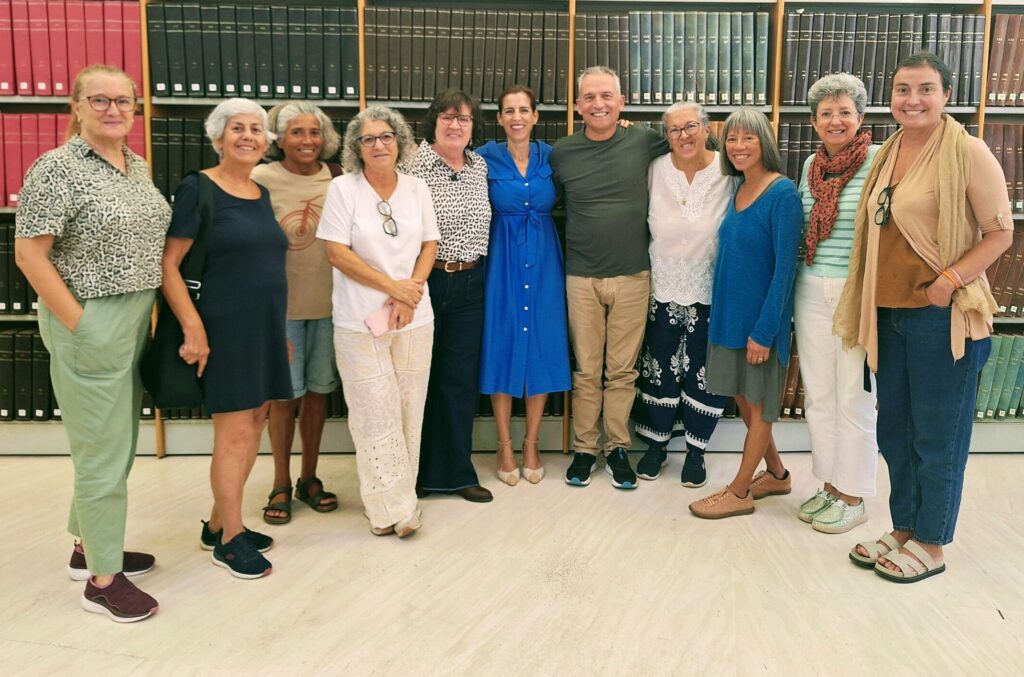
Learning Spanish has always come with an emotional element for me. But I hadn’t cried while learning Spanish until this month. I took the insane step of signing up for a creative writing workshop at the local library here in Málaga. I’d written some short pieces in Spanish, usually essays, for my online teacher Nathalie and found that each time, the writing flowed more easily. Thinking in Spanish was becoming more natural.
Sebastian, my in-person Spanish teacher, has long encouraged me to take a class with locals about something I’m interested in learning, like painting or cooking. I would learn new vocabulary, and being in a class with Spaniards would help accelerate my learning of the language. But I don’t want to learn painting or cooking. My days are largely devoted to writing and reading. And while I’ve been allocating part of my reading time to novels in Spanish, I write, of course, in English. Right now, I’m in the process of finishing one novel manuscript and starting another. The bulk of my daily life is necessarily in English rather than in Spanish.
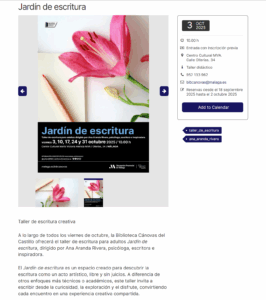 But having recently read Jhumpa Lahiri’s In Other Words, in which she chronicles her efforts and ultimate successes in writing only in Italian, her adopted language, I began to wonder if one day I could achieve something similar in Spanish. I learned about the creative writing workshop just two days before the first session. I didn’t have time to debate myself on my readiness for such an endeavor. I just filled out the online form.
But having recently read Jhumpa Lahiri’s In Other Words, in which she chronicles her efforts and ultimate successes in writing only in Italian, her adopted language, I began to wonder if one day I could achieve something similar in Spanish. I learned about the creative writing workshop just two days before the first session. I didn’t have time to debate myself on my readiness for such an endeavor. I just filled out the online form.
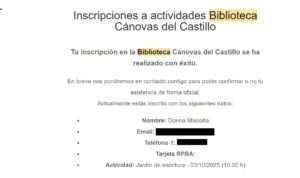 The next day I received a notice that I was accepted into the class and the day after that I found myself at a table with fourteen Spaniards. At that moment, the reality of what I’d signed up for hit hard. But I was committed. I stayed in my chair. The first thing the teacher asked us to do was to say a word that reflected what we felt that morning and to explain why we felt that way. Mine of course was miedo. I said I was scared because I was still learning Spanish and I didn’t have a lot of experience writing creatively in Spanish. There, now everyone knew my handicap so when I faltered or worse—failed—it would be apparent why.
The next day I received a notice that I was accepted into the class and the day after that I found myself at a table with fourteen Spaniards. At that moment, the reality of what I’d signed up for hit hard. But I was committed. I stayed in my chair. The first thing the teacher asked us to do was to say a word that reflected what we felt that morning and to explain why we felt that way. Mine of course was miedo. I said I was scared because I was still learning Spanish and I didn’t have a lot of experience writing creatively in Spanish. There, now everyone knew my handicap so when I faltered or worse—failed—it would be apparent why.
Then as in generative writing workshops I’d taken in English, we were given a prompt and we wrote for several minutes. But different from the workshops I’d taken before, sharing what we’d written was not voluntary. It was obligatory. Ana, the teacher did concede to my pleas to pass for the first round. For the second exercise, however, she began with me. Everyone was waiting. As much as I wanted to, I couldn’t run out of the room. One of the writers across the table came around and put his hand on my shoulder for moral support and effectively blocked any escape. But I couldn’t leave in defeat anyway. I had committed to the class and taken up a spot. The only thing to do was stay and embarrass myself with my little piece of writing. I apologized for its brevity and lack of depth. Es corto. No es muy profundo. Then I read the three anemic lines I had scribbled, which received kind encouragement from my classmates, all of whom then shared their longer, beautifully written pieces. For two hours, I lived this daymare of being where I probably didn’t belong.
The fact is I am never good at writing from prompts in timed sessions—not in English, not in Spanish. I’m a slow writer. Words come in grudging spurts like the remains from a half-empty ketchup bottle.
Thankfully, time ran out before we could finish our responses to the last prompt. We were to finish it at home along with a homework assignment. Back home, I went straight to my desk and wrote the two pieces on my laptop, madly. Then I threw myself on the bed and cried.
The following week I was willing, even eager, to share the two pieces. I had asked Sebastián to check them for errors and of course he found some. Minor ones, he assured me.
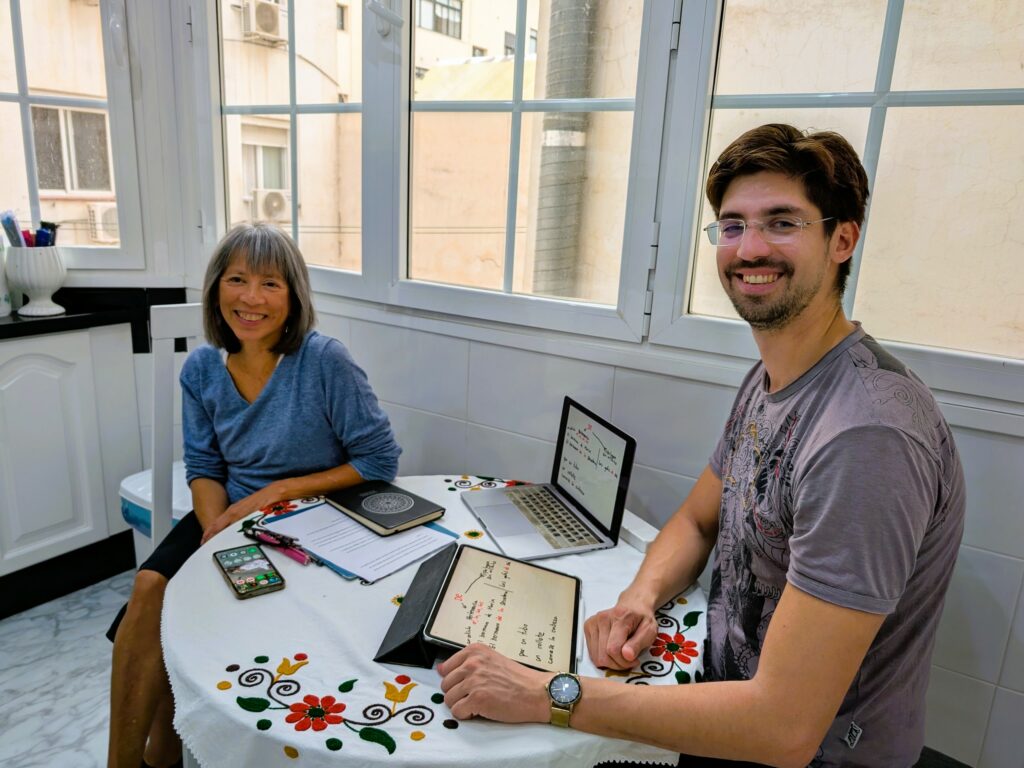
Photo by James Cameron
It was a relief to read aloud my little essays that were thought out and corrected. And though I still struggled during the timed writing exercises that day, I managed better than the first class. And yet, I again went home and cried.
There was no crying after the third class because I didn’t attend. I was in Madrid for several days for a pop-up reading with the European Writers Salon at Librería Desperate Literature. I read a short essay. In English! While in Madrid, I also went to listen to jazz, visited my favorite collection at the Museo Thyssen-Bornemisza, spent an afternoon in the Retiro, caught the sunset at the mirador next to the Royal Palace, and found a wonderful teashop with a sublime carrot cake.
Also, as part of the EWS activities, I went on a walking tour of the Barrio de la Letras. I was familiar already with that area and its history, having twice toured the Casa de Lope de Vega and read about his rivalry with Cervantes as well as the rivalry between poets Quevedo and Góngora, and I had stopped many times to read the quotes from Spanish writers embedded in the stones in the Calle de las Huertas. But I knew a tour led by a local would provide new information. Our guide was a young art historian and a gallery owner who had grown up in Madrid and was in love with his city both for its past and its present. Among the new things I learned from Marcos was the location of the first printing of Don Quijote de la Mancha and the location of a tiny wine bar with a growing reputation for its wines, its chefs, and its clientele. It’s Bocanada on Calle de Leon, and Eva Longoria has been there.
Before Madrid, I spent two nights in Córdoba, just an hour’s train ride from Málaga. Cordoba, like many cities in Spain, was once ruled by Romans. The bridge they built still spans the Guadalquivir despite time and the succession of conquerors—the Visigoths and then the Muslims under whom the city flourished as an intellectual center, becoming the second largest city in Europe in the tenth century. They built the Great Mosque, which was later converted into a church with the Christian conquest in the thirteenth century. The mosque itself was built upon a Visigothic church. It raises the question: What’s worse? Obliterating another faith’s place of worship by building on top of it, or usurping another faith’s place of worship and building within its walls architectural and religious elements of the conqueror—in this case an altar, apse, choir, chapels, and stained glass?
Córdoba’s Mezquita-Catedral is a World Heritage Site and is a major tourist draw. I went early to get in and out before it became too overrun with my fellow sightseers. There was a mass in progress when I entered and walked in awe among the Islamic arches. I have never felt at ease walking through a cathedral (former Catholic here). But my unease was multiplied in this cathedral built inside a mosque—a big beautiful architectural wonder. I felt a sense of incongruity and appropriation and sadness. It’s a building very much about conquest, which is basically the history of the world.
I was back in Málaga for the fourth and fifth classes of the writing workshop. The fourth class was smaller than the first two, only eight of us, which meant fewer people to share their work, which meant more time to move on to the next exercise and the next after that, which meant more anxiety about writing in class and sharing my anxiety-driven output. I was always grateful when a discussion was sparked by someone’s story which prolonged the interval until the next exercise. When I got home after the fourth class, I took a nap. I didn’t cry. I think I had begun to relax a little about the in-class timed writing and had accepted the inevitability of sharing it. I didn’t cry after the fifth class either, because, well, it was the final class. It was a relief that I would not put myself through such anxiety for another day. But it was also a triumph. I had written in Spanish which required thinking in Spanish. I had sat in a class of Spaniards who loved making beautiful sentences into stories that were clever, elegant, and deeply felt. I am grateful for the whole experience and for the lovely people with whom I shared that writing table, and for the kind, light-filled presence of Ana, the teacher.
And about those tears. I didn’t triumph over tears. I triumphed with tears. Because it’s okay to cry while learning Spanish.
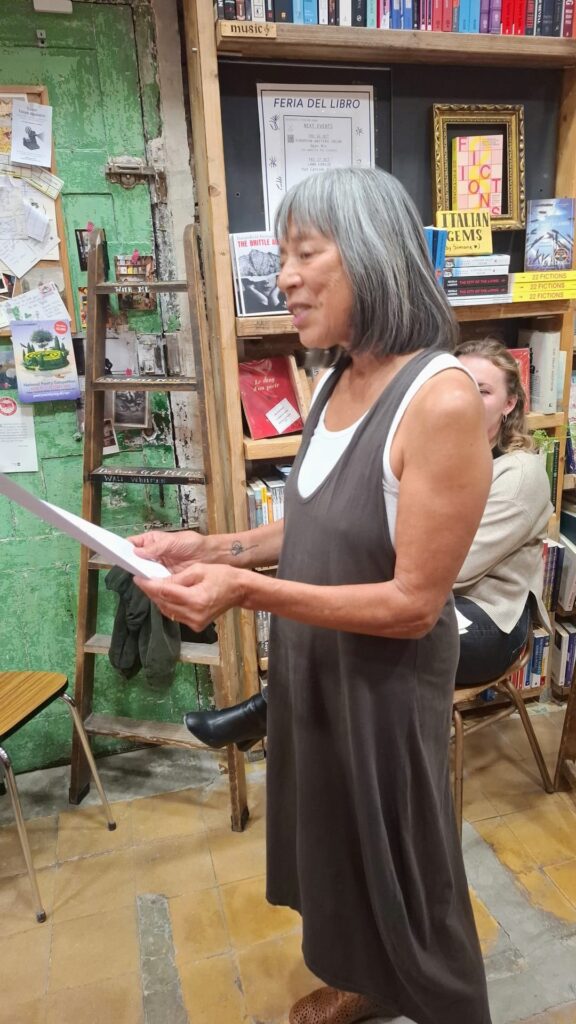
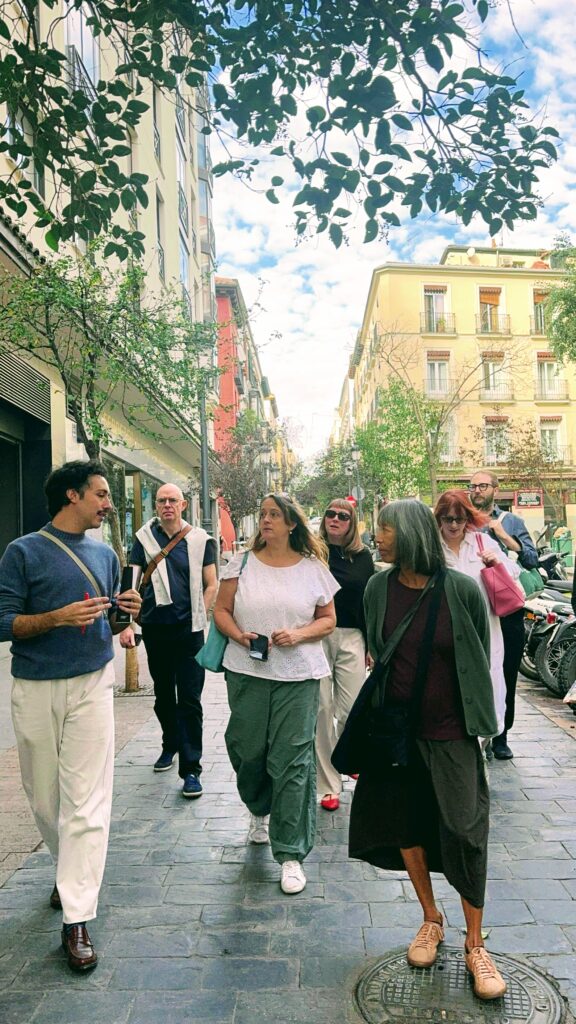
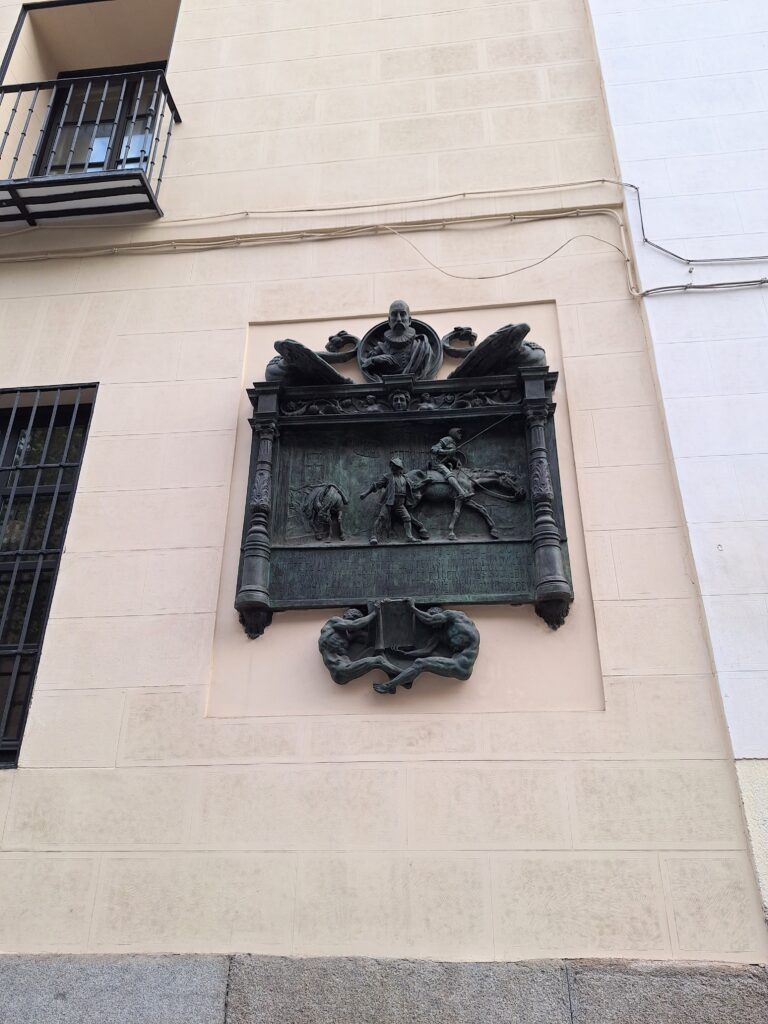
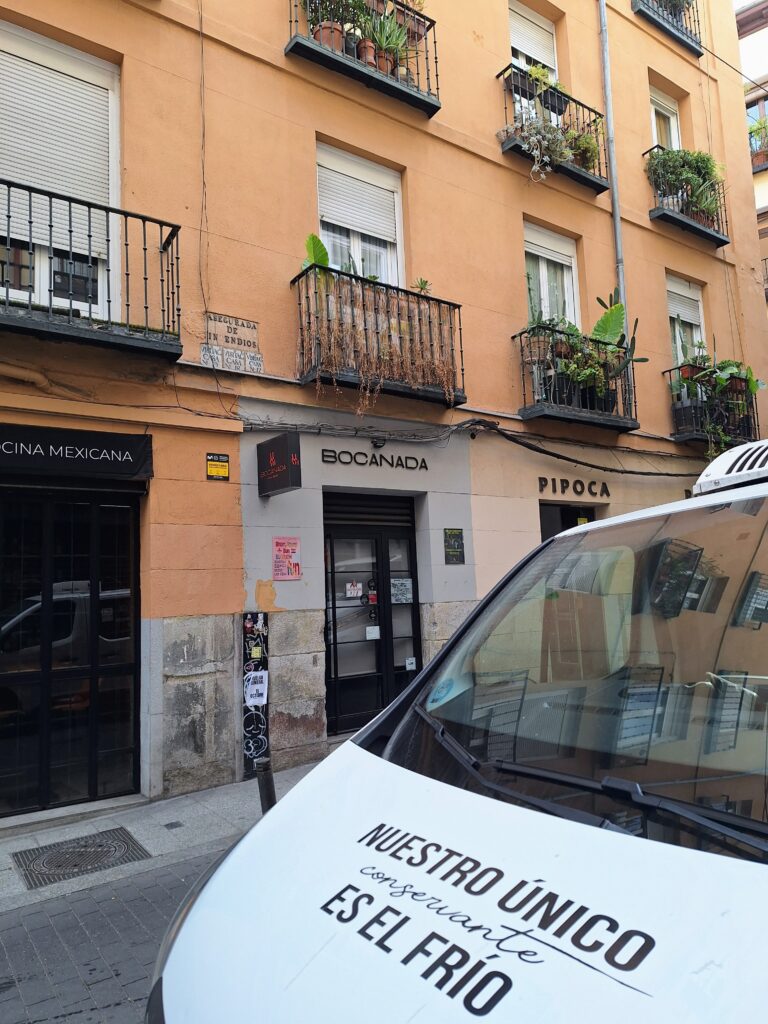





When we allow ourselves to honor our feelings they reward us with the kind of triumph you so beautifully describe. Congratulations!
Thank you, Joyce!
Oh, my friend, I remember your story of crying after the first class. Bravo to you for persevering! When I return this winter, I want to try to speak Spanish more often. Let’s do that – yes, shall we? No tears, but probably a good laugh or two.
Yes, definitely!
Pobrecita! That sounds stressful. But you did it!
I’m glad I did it but I don’t think I’ll try another one for a while.
Oh, this is so charming and touching, Donna! I wish I could be there in your class, learning and crying.
Thank you, Mary, for the sweet words and sentiment.
The quote I turn to in these moments:
“In the beginner’s mind there are many possibilities, but in the expert’s there are few.”
― Shunryu Suzuki
Glad you gave yourself the grace to seek possibilities.
Oh, Linda, I should have sought your wisdom in the first place. Perfect quote to keep in mind. Also, a young, trilingual Frenchwoman I know told me I should think of language learning as a game and have fun with it. That makes sense too.
Thank you, Donna. I relate to the anxiety. We plan to travel to Portugal this spring, and I look forward, after all these years of jousting with Spanish, to attempting to communicate in Portuguese.
Have fun in Portugal! Last year I spent a few days each in Lisbon and Porto and found that English is widely spoken. I’m sure though that your Portuguese will be appreciated.
Donna, Your entire adventure after your retirement here in the States is something of courage and guts and tears. Amazing. And as you struggle to think and write and share in another language remember y ou are not a toddler with all kinds of flexibilty in your brain. You are an elder (of sorts) and are doing the very best stuff you can do for your brain health. Imagine! A new language! Walking everywhere! Making new friends! I think you will have a very long and healthy life.
Thank you, Gayle, for these words of wisdom and support!